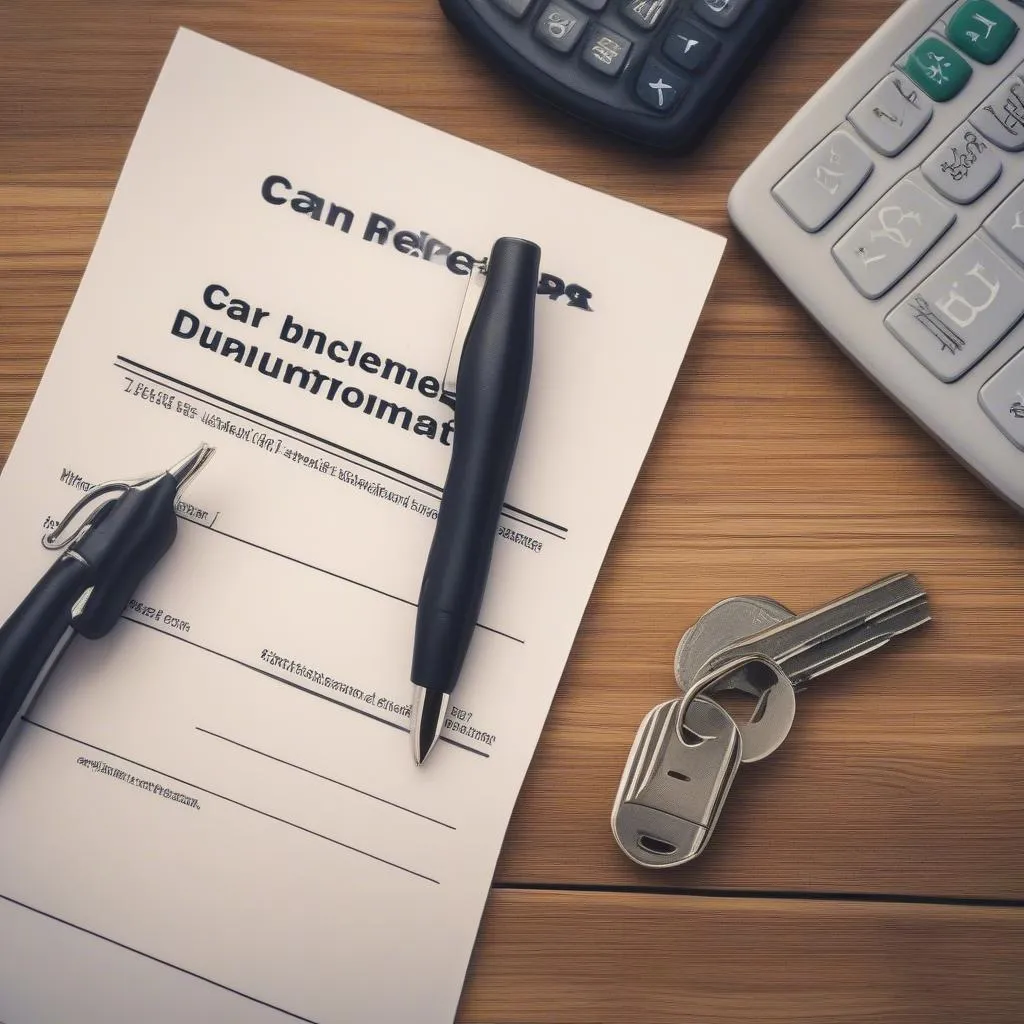Imagine this: You’re cruising down the Pacific Coast Highway in your trusty Honda Civic, the California sun warming your face. You pass a dealership showcasing the brand-new electric Ford Mustang, and your heart skips a beat. You’d love to upgrade, but then you remember – you still owe money on your Civic. Can you really trade in a financed car?
The good news is – yes, you absolutely can trade in a financed car! Many car buyers do it every day. However, it’s not as simple as trading in a car you own outright. There are a few more steps involved and factors to consider.
Understanding the Intricacies of Trading in a Financed Car
Before we dive in, let’s break down what it means to trade in a financed car.
When you finance a car, you’re essentially taking out a loan to purchase the vehicle. The lender (a bank, credit union, or the car dealership itself) holds the title of the car until you’ve paid off the loan. This means you don’t fully own the car until the loan is completely paid off.
“Trading in” simply means using your current car’s value to offset the cost of a new one. So, how does this work when you don’t fully own your current car?
Navigating the Trade-In Process with an Outstanding Loan
-
Determine Your Car’s Value and Loan Payoff Amount:
- Know Your Car’s Worth: Use online tools like Kelley Blue Book or Edmunds to get an estimated market value for your car based on its make, model, year, mileage, and condition.
- Contact Your Lender: Request a “10-day payoff” amount, which is the total amount you’d need to pay to fully own the car, including any accrued interest.
-
Explore Your Options: You have a few options when trading in a financed car:
- Positive Equity: If your car’s value is higher than your loan payoff, you have positive equity. This is great news! You can use this equity as a down payment on your new car. Imagine trading in your Civic and having a substantial down payment ready for that electric Mustang!
- Negative Equity: If your car’s value is lower than your loan payoff, you have negative equity, often called being “upside down” on your loan. Don’t despair, you still have options:
- Rollover the Negative Equity: You can add the remaining loan balance to your new car loan. However, keep in mind this increases your new loan amount and monthly payments.
- Pay Off the Difference: Pay the difference between your car’s value and the loan payoff amount out of pocket.
- Wait and Build Equity: Consider waiting to trade in your car until you’ve built more equity. You can do this by making extra payments on your loan or driving the car longer to decrease depreciation.
-
Negotiate with Dealerships: Shop around at different dealerships to get the best value for your trade-in and the best deal on your new car. Don’t be afraid to negotiate!
“Remember,” says John Smith, Senior Automotive Advisor at Auto Insight, “knowledge is power in car negotiations. Be informed about your car’s value, your loan situation, and different financing options. This will empower you to make the best decision for your individual circumstances.”
-
Close the Deal: Once you’ve found a dealership and a car you love, the dealership will handle the final paperwork, including paying off your existing loan.
Common Questions About Trading in a Financed Car:
- Can I trade in my car to a dealership other than where I purchased it? Absolutely! You’re not obligated to trade in your car at the same dealership.
- Will trading in my car hurt my credit score? Trading in your car itself doesn’t directly impact your credit score. However, if you roll over negative equity into a new loan, it can increase your debt-to-income ratio, which might slightly lower your score.
- What documents do I need to trade in a financed car? You’ll need your driver’s license, car insurance, loan paperwork, and the vehicle’s title (if you have it).
 car trade in process
car trade in process
Similar Questions and Topics You Might Find Helpful:
- How to Return a Financed Car Without Penalty
- Understanding Car Loan Interest Rates
- Tips for Negotiating a Car Purchase
 car loan document and calculator
car loan document and calculator
Get Expert Assistance with Your Car Diagnostics Needs
We hope this article has empowered you with the knowledge to confidently navigate the process of trading in your financed car. Remember, while we’ve provided comprehensive information, seeking personalized advice is always beneficial.
At Diag XCar, we understand the complexities of car ownership, especially when it comes to diagnostics and electronics. If you need assistance with your car’s diagnostic tools or have any questions, our team of expert technicians is available 24/7. Contact us on Whatsapp at +84767531508.
We’re here to support you every step of the way!


